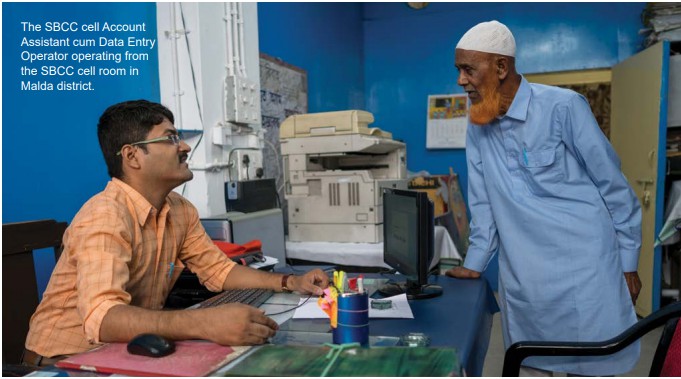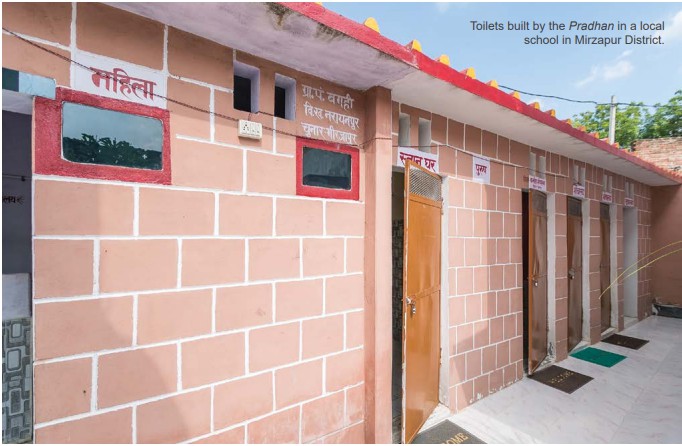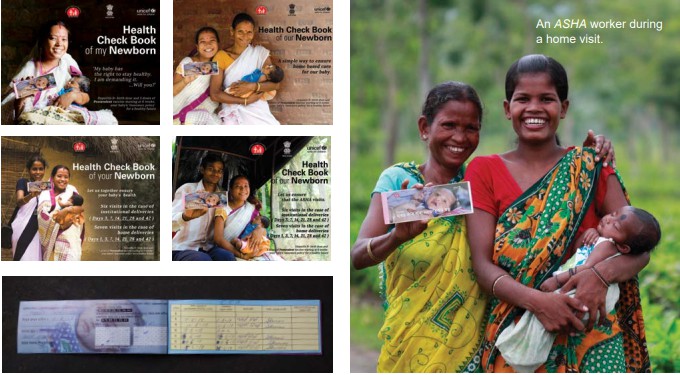Knowledge Management
Our goal is to bring people and content together to maximize knowledge-sharing and management and to encourage the spread of ideas. Use this site to find and share documents, testimonials, reports and capacity building resources regarding social and behaviour change (SBC).
Featured Resources
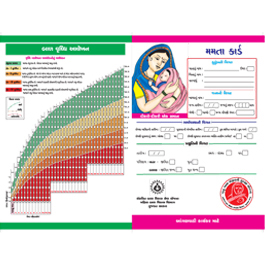
Mamta Card Booklet (Gujarati)
A mother and child care booklet designed to provide information to caregivers about care for pregnant, lactating women and 0-3 years Children. It provides basic information about antenatal check-ups, newborn care, post-natal check-ups, and exclusive breastfeeding.
READ MORE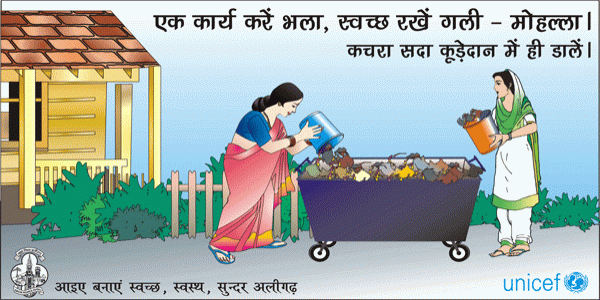
Ek Karya Karein Bhala, Swach Rakhe Gali-Mohalla Hoarding (Hindi)
This hoarding illustrates the actions to be taken by the citizens to ensure cleanliness in the community. The hoarding invites all the community members to join hands in keeping the surroundings clean. The message is specifically targeted towards urban an
READ MORE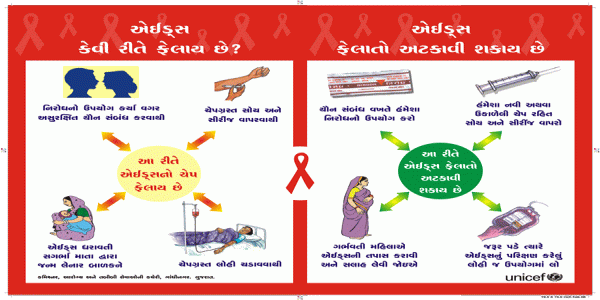
HIV/AIDS Poster (Gujarati)
To generate awareness regarding the various routes of transmission of HIV/AIDS, and the prevention methods. This is meant to be used by peer educators, panchayat members, NGO workers, Anganwadi workers, ANMs.
READ MORE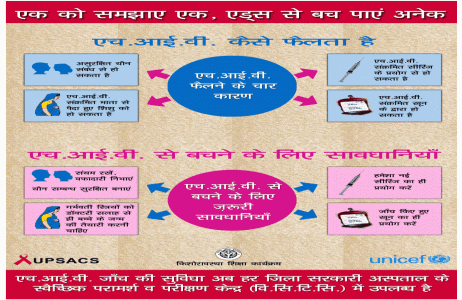
Ek Ko Samjhaye Ek, AIDS Se Bach Paye Anek Poster (Hindi)
The wall poster describes basic information about transmission and prevention of HIV/AIDS. While the poster can be used for any audience group, the specific target audience is students covered by adolescence education programme. Designed to be used by stu
READ MORE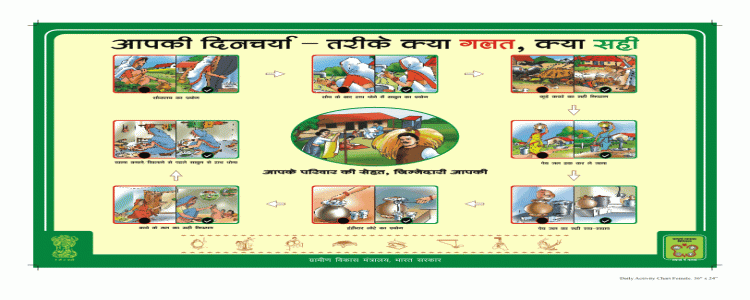
Daily Activity Poster-1 (Hindi)
This is the first of a set of two poster charts on the right and wrong aspects of daily activities related to sanitation and hygiene carried out by women; part of the communication materials developed for the Total Sanitation Campaign (TSC). This poster h
READ MORE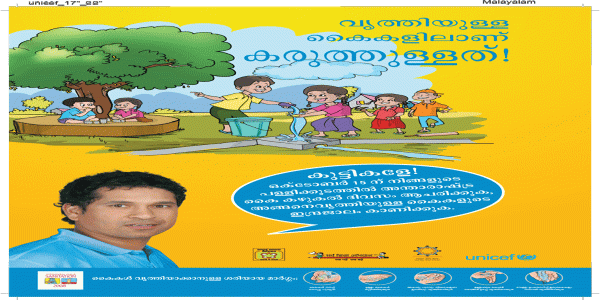
CLEAN HAND STRONG HAND POSTER ON HANDWASHING DAY (MALAYALAM)
This poster announces the date of global handwashing day - 15th October 2008. In the poster, the handwashing ambassador, Sachin Tendulkar calls all the children to wash their hands with soap before they eat the mid-day meal on 15th October 2008. The poste
READ MORE- Categories
- Reports
- Case Studies
- Audios/Videos
- Testimonials
- Blogs
District SBCC CellsSystem Strengthening for Improved Capacity in Social and Behaviour Change Communication in West Bengal
Sep 10, 2021
The Government of West Bengal implements various flagship programs to protect and promote the rights of children. These include the Integrated Child Protection Scheme, Sarva Shiksha Abhiyan, Integrated Child Development Scheme, National Health Mission, Mission Nirmal Bangla for the development of children, adolescents, and women. These programs approached communication from a knowledge and education lens and included an Information, Education, and Communication (IEC) component rather than the broader perspective of Social and Behaviour Change Communication (SBCC), which includes dialogical processes to bring in individual, societal, cultural, and environmental changes for desired norms and choices. To read more click here
Read MoreSuramya: Communication to Eliminate Open Defecation in Uttar Pradesh
Sep 10, 2021
The government of India initiated the Swachh Bharat Mission (SBM) (Clean India Mission) in 2014 with the key objective of eliminating open defecation in the country by 2 October, 2019. Information, Education, and Communication (IEC) were identified as a key component of the program, to bridge the gap between the construction of toilets and their sustained use. Around 5 percent of the state funds under SBM have been allocated for this purpose. However, the utilization of IEC funds was slow. Key district officials of the SBM team lacked the capacity to plan, implement, and monitor communication activities which were initiated in an ad hoc manner. To reach more click here
Read MoreHome-based newborn care voucher system in Assam
Sep 10, 2021
Nearly three-quarters of all neonatal deaths in the world occur in the first week of birth, of which 25-45 percent occur in the first 24 hours. India has a high Neonatal Mortality Rate (NMR) at 25 per 1,000 live births (SRS, 2015). Skilled care during pregnancy, childbirth, and in the postnatal period can enable early detection of ailments and subsequent management of health complications in mothers and newborns. Assam’s Infant Mortality Rate (IMR) is 41 as opposed to the national figure of 37﹘ making it a high priority state for the national government. To read more click here
Read MoreSishu O MatruSuraksha: A social and behaviour change intervention for child and maternal health in Odisha
Sep 10, 2021
Globally, about 800 women die every day of preventable causes related to pregnancy and childbirth – 20 percent of whom are from India. Though the Maternal Mortality Rate (MMR) reduced from 212 in 2007 to 178 in 2012, there remains scope to save more children and mothers. Underlying reasons for a relatively high MMR and Infant Mortality Rate (IMR) include social norms relating to health and nutrition, and low demand and access for the same. The intervention led by the Government of Odisha is supported by UNICEF and aims at strengthening community-based institutions through Social and Behaviour Change Communication (SBCC), leading to better access and utilization of Reproductive, Maternal, Newborn, Child, and Adolescent Health (RMNCH+A) services in the region. To read more click here
Read More